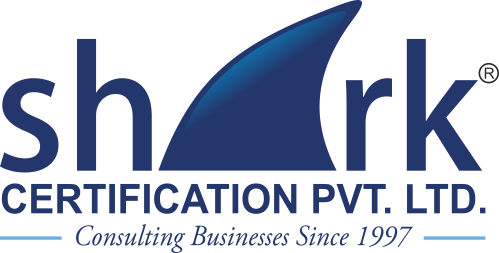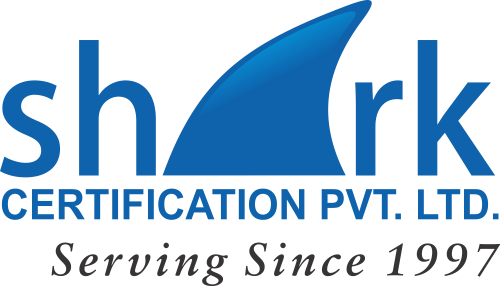FSMS 22000 (Food Safety Management System) is an internationally recognized standard for food safety. It provides a framework for businesses in the food industry to establish and maintain effective food safety management systems. The standard is designed to help organizations ensure that food products are safe for consumption, from production through to delivery. FSMS 22000 certification helps businesses minimize risks, comply with regulatory requirements, and demonstrate their commitment to providing safe food to consumers.
Shark Certification offers comprehensive support to businesses seeking to achieve FSMS 22000 Certification, ensuring that your organization meets the global food safety management standards and enhances the quality and safety of your food products.
- Ensures compliance with global food safety regulations.
- Demonstrates your commitment to consumer health and safety.
- Helps reduce risks associated with foodborne illnesses.
Our Key Strengths
Shark Certification specializes in helping businesses achieve FSMS 22000 Certification with a thorough, step-by-step approach:
- Expert Guidance: Our team has deep knowledge of FSMS 22000 standards and food safety regulations.
- Tailored Solutions: We provide customized support to help you implement an effective food safety management system tailored to your business needs.
- End-to-End Assistance: Shark Certification supports you throughout the entire certification process, ensuring successful certification and ongoing compliance.
Advantages of FSMS 22000 Certification
Achieving FSMS 22000 Certification offers several significant advantages for businesses in the food industry:
- Improved Food Safety: Certification helps identify and mitigate risks related to food safety, ensuring products are safe for consumption.
- Compliance with Regulations: FSMS 22000 helps you meet national and international food safety regulations, ensuring compliance with both industry standards and legal requirements.
- Consumer Trust: Certification builds consumer confidence, as they can trust that your business follows internationally recognized food safety practices.
- Enhanced Reputation: Demonstrating a commitment to food safety and quality can strengthen your brand’s reputation in the market.
- Reduced Risk of Contamination: By implementing FSMS 22000, your business can minimize the risks of foodborne illnesses and recalls.
- Market Advantage: Certification can give you a competitive edge in a crowded food industry by assuring customers of your commitment to quality and safety.
Application Process
The process of obtaining FSMS 22000 Certification involves a series of well-defined steps, all of which are supported by Shark Certification:
- Initial Assessment: Conduct a gap analysis to evaluate your existing food safety practices and identify areas that need improvement.
- Develop an Action Plan: Create a plan that outlines how your organization will meet the FSMS 22000 standards, including changes in policies, procedures, and documentation.
- Implement System Changes: Put in place the necessary food safety management procedures and policies.
- Staff Training: Ensure that all employees are trained on food safety standards and how they relate to their roles within the company.
- Inspection: Prepare for an inspection to verify that your food safety management system complies with FSMS 22000 standards.
- Certification Audit: Undergo an audit by a recognized certifying body to evaluate your system’s compliance with FSMS 22000.
- Award of Certification: After passing the audit, you will receive your FSMS 22000 Certification, confirming your food safety management system meets international standards.
- Ongoing Monitoring: Shark Certification offers continuous support to help you maintain your certification and comply with evolving food safety regulations.
Requirements for FSMS 22000 Certification
To achieve FSMS 22000 Certification, your organization must meet specific requirements:
- Food Safety Management System: Develop and implement a comprehensive food safety management system that meets FSMS 22000 standards.
- Risk Assessment: Conduct a thorough risk assessment to identify potential hazards throughout the food production process.
- Traceability: Maintain traceability of all products from raw material sourcing to delivery.
- Record Keeping: Proper documentation and record-keeping must be maintained for audits and inspections.
- Staff Training: Employees must be adequately trained in food safety practices and the FSMS 22000 standards.
- Regulatory Compliance: Ensure that your processes comply with applicable national and international food safety regulations.
- Regular Audits: Your system must undergo regular internal and external audits to ensure ongoing compliance.
Benefits of FSMS 22000 Certification
FSMS 22000 Certification provides numerous benefits to businesses in the food industry:
- Enhanced Food Safety: The primary benefit of FSMS 22000 is its ability to help businesses ensure the safety of their products, reducing the risk of contamination and foodborne illnesses.
- Regulatory Compliance: FSMS 22000 ensures compliance with international food safety regulations, which can help prevent legal issues and fines.
- Improved Brand Image: Consumers increasingly demand safe and high-quality food products, and FSMS 22000 Certification demonstrates that your business meets these demands.
- Increased Market Share: By ensuring product safety, FSMS 22000 certification gives your business a competitive edge and helps increase market share in the global food industry.
- Risk Reduction: Certification helps identify and manage potential risks in food production, which can prevent costly recalls or reputational damage.
- Sustainability: FSMS 22000 encourages sustainable practices throughout the food production process, ensuring that the environment and consumer health are prioritized.
FAQs about FSMS 22000 Certification
Q: What is FSMS 22000 Certification?
A: FSMS 22000 Certification is a globally recognized food safety management standard that ensures organizations in the food industry implement safe practices to protect consumers.
Q: Who needs FSMS 22000 Certification?
A: Food producers, manufacturers, and suppliers who wish to ensure food safety and compliance with international food safety regulations should seek FSMS 22000 Certification.
Q: How long does it take to obtain FSMS 22000 Certification?
A: The certification process typically takes several months, depending on the complexity of your organization’s operations and current compliance with food safety standards.
Q: Is FSMS 22000 Certification recognized internationally?
A: Yes, FSMS 22000 Certification is globally recognized and helps businesses demonstrate compliance with international food safety standards.
Q: What are the costs involved in obtaining FSMS 22000 Certification?
A: The cost of certification varies depending on the size and complexity of your organization, but it is a worthwhile investment to ensure product safety and regulatory compliance.
Why Choose Shark Certification for FSMS 22000 Certification?
Shark Certification is the ideal partner for businesses looking to achieve FSMS 22000 Certification:
- Industry Expertise: Our team has extensive experience in food safety management systems and understands the specific needs of the food industry.
- Tailored Support: We provide personalized solutions to help your organization meet FSMS 22000 standards.
- Comprehensive Assistance: Shark Certification supports you from the initial consultation through to certification and beyond.
- Global Recognition: Achieve international recognition for your commitment to food safety with FSMS 22000 Certification.
- Ongoing Compliance Support: We offer continuous monitoring and guidance to help you maintain FSMS 22000 certification and stay compliant with evolving food safety regulations.
Partner with Shark Certification to ensure your business meets global food safety standards and demonstrates a commitment to consumer health and safety.
Ensure the safety of your food products with FSMS 22000 Certification.
Contact Shark Certification today to start your certification journey and comply with international food safety standards.


